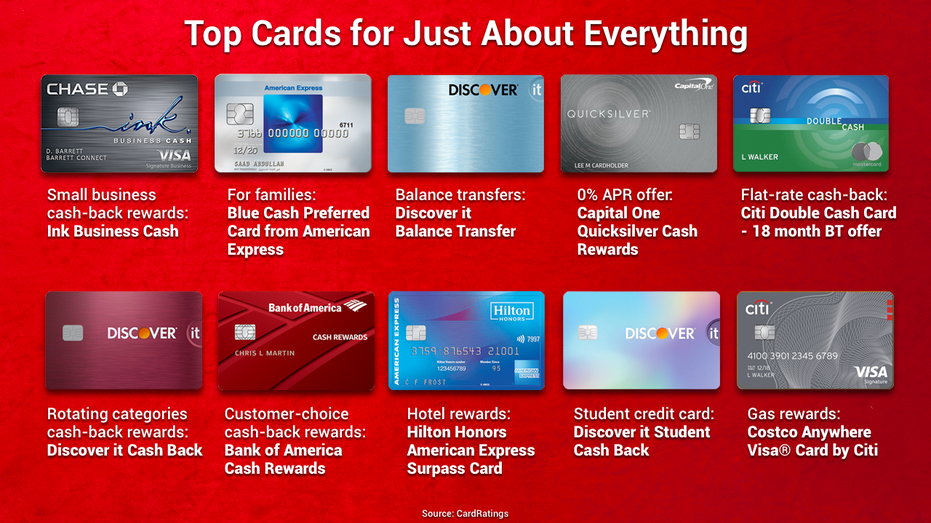Best Credit Line For Business
Welcome to our guide on the top credit lines for business! If you’re a business owner looking for financial flexibility and access to funds, you’ve come to the right place. We’ve compiled a list of the best credit lines that can help support and grow your business. Whether you’re in need of working capital, funds for expansion, or just want to have a safety net in place, these credit lines offer various benefits to suit your needs. Read on to discover the top options available to you.
Overview of Business Credit Lines
Business credit lines are a popular form of financing for small and medium-sized businesses. A business credit line is a revolving credit account that allows a business to borrow funds up to a predetermined limit. Unlike a traditional term loan, where you receive a lump sum of money upfront and repay it over time, a credit line gives you the flexibility to borrow money as needed, up to a certain amount, and repay it on a revolving basis.
One of the key advantages of a business credit line is that it provides access to funds when you need them, without having to go through the process of applying for a new loan every time. This can be particularly beneficial for businesses with fluctuating cash flow or seasonal revenue patterns. With a credit line in place, you can easily cover unexpected expenses, take advantage of new growth opportunities, or manage cash flow gaps without having to worry about applying for additional financing.
Business credit lines also offer flexibility in terms of how you use the funds. Unlike some types of business loans that come with restrictions on how the money can be used, a credit line gives you the freedom to use the funds for any business purpose. Whether you need to purchase inventory, cover payroll expenses, invest in marketing campaigns, or fund a new project, a business credit line can provide the financial flexibility you need to support your business operations.
When it comes to applying for a business credit line, lenders typically look at a variety of factors to determine your eligibility, including your business credit score, revenue history, cash flow projections, and collateral (if required). The terms and interest rates on a business credit line can vary depending on the lender, your creditworthiness, and the overall financial health of your business. It’s important to shop around and compare offers from different lenders to find the best credit line for your business needs.
Comparison of Different Business Credit Line Options
When it comes to finding the best credit line for your business, it’s important to explore and compare the different options available to you. Here, we will delve into the various types of business credit lines to help you make an informed decision.
1. Traditional Bank Loans: Traditional bank loans are a popular choice for many businesses looking for a credit line. These loans typically have fixed interest rates and repayment terms, making them a predictable option for businesses with stable cash flow. However, the application process for traditional bank loans can be lengthy and stringent, requiring extensive documentation and a good credit score. Additionally, approval rates for bank loans can be lower compared to other credit line options.
2. Business Line of Credit: A business line of credit is a flexible revolving credit line that allows businesses to borrow funds up to a predetermined limit. This type of credit line works similarly to a credit card, where businesses can borrow funds as needed and only pay interest on the amount borrowed. One of the main advantages of a business line of credit is its flexibility, as businesses can access funds quickly and easily to cover unexpected expenses or take advantage of growth opportunities. Additionally, businesses can also use a business line of credit to manage cash flow during slow seasons.
3. Invoice Financing: Invoice financing is a credit line option where businesses can borrow funds against their outstanding invoices. This type of credit line is ideal for businesses that have a steady stream of accounts receivable and need quick access to working capital. Invoice financing can help businesses maintain a healthy cash flow by providing them with immediate funds to cover operational expenses or invest in growth opportunities. However, it’s important to note that invoice financing can be more expensive than other credit line options due to the fees associated with borrowing against invoices.
4. Online Lenders: Online lenders have gained popularity in recent years as a convenient alternative to traditional bank loans. These lenders offer business credit lines with flexible terms and fast approval processes, making them an attractive option for businesses looking to access funds quickly. While online lenders may have higher interest rates compared to traditional bank loans, they often have higher approval rates and more lenient credit requirements, making them a viable option for businesses with less-than-perfect credit.
5. Small Business Administration (SBA) Loans: SBA loans are government-backed loans designed to help small businesses access affordable funding. These loans offer competitive interest rates and long repayment terms, making them an attractive option for businesses looking for long-term financing. While the application process for SBA loans can be more rigorous compared to other credit line options, the benefits of lower interest rates and government backing can make it worth the effort for eligible businesses.
In conclusion, when comparing different business credit line options, it’s important to consider factors such as flexibility, cost, approval process, and repayment terms to find the best fit for your business’s financial needs. By exploring and comparing the various options available, you can make an informed decision that will help your business thrive and grow.
Top Benefits of Utilizing a Business Credit Line
Obtaining a business credit line can provide various advantages for entrepreneurs looking to expand their company or manage cash flow effectively. Here are the top benefits of utilizing a business credit line:
1. Flexibility: One of the main benefits of having a business credit line is the flexibility it offers. Unlike traditional loans where you receive a lump sum of money upfront, a business credit line allows you to access funds as needed. This means you can withdraw funds whenever necessary, up to a specified credit limit. This flexibility is particularly useful for managing seasonal fluctuations in cash flow or taking advantage of unexpected business opportunities without having to apply for a new loan each time.
2. Improve Cash Flow: Utilizing a business credit line can help improve cash flow management for your business. By having access to a revolving line of credit, you can cover short-term expenses such as payroll, inventory purchases, or equipment maintenance. This can help bridge any gaps in cash flow and ensure that your business operations run smoothly, even during slow periods.
3. Build Business Credit: Another benefit of utilizing a business credit line is the opportunity to build and improve your business credit profile. When you use your credit line responsibly and make timely payments, it can have a positive impact on your business credit score. A strong business credit profile can help you qualify for better terms on future financing options, such as loans or lines of credit. Additionally, having a good credit history can enhance your business’s credibility and reputation in the eyes of lenders and suppliers.
4. Interest Only on Amount Utilized: With a business credit line, you only pay interest on the amount you borrow, not on the entire credit limit. This can result in cost savings compared to traditional loans, where you pay interest on the full loan amount from the beginning. By only paying interest on the funds you use, you can keep your borrowing costs low and maximize the value of your credit line.
5. Quick Access to Funds: In times of urgency or unforeseen expenses, having a business credit line can provide quick access to funds. Once your credit line is approved, you can typically access funds within a few business days, making it a convenient option for businesses in need of immediate financing. This quick access to funds can help you address emergency situations or capitalize on time-sensitive opportunities without delay.
In conclusion, a business credit line can be a valuable financial tool for businesses looking to enhance their cash flow management, build business credit, and seize growth opportunities. By leveraging the flexibility, cost-effectiveness, and convenience of a business credit line, you can better position your business for success in the competitive market.
How to Qualify and Apply for a Business Credit Line
Applying for a business credit line can be a great way for entrepreneurs to access funds to grow their business. But before you can get approved for a credit line, you need to meet certain qualifications. Here are some tips to help you qualify and apply for a business credit line:
1. Check your credit score: One of the first things lenders will look at when you apply for a business credit line is your credit score. A good credit score shows lenders that you are a responsible borrower and are likely to repay the funds you borrow. Make sure to check your credit score before applying and take steps to improve it if necessary.
2. Prepare your financial documents: In addition to your credit score, lenders will also want to see your company’s financial documents, such as tax returns, income statements, and balance sheets. Make sure to have these documents ready when you apply for a business credit line.
3. Have a solid business plan: Lenders want to know that your business is stable and has a plan for growth. Having a solid business plan that outlines your goals, target market, and financial projections can help you secure a business credit line.
4. Build a relationship with your bank: One of the best ways to increase your chances of getting approved for a business credit line is to build a relationship with your bank. Lenders are more likely to approve a credit line for customers they know and trust. Take the time to meet with your bank representative, discuss your business needs, and show them that you are a reliable borrower.
5. Consider alternative lenders: If you have trouble qualifying for a traditional business credit line, consider alternative lenders such as online lenders or community banks. These lenders may have different qualification requirements and can be more flexible in their lending criteria.
6. Apply for the right amount: When applying for a business credit line, make sure to request the right amount of funds for your needs. Lenders will consider your business’s financial health and ability to repay when determining the amount they are willing to lend. Be realistic about how much funding your business actually needs.
By following these tips, you can improve your chances of qualifying and applying for a business credit line. Remember to do your research, prepare your documents, and build a relationship with your bank to increase your chances of getting approved for the funds you need to grow your business.
Tips for Managing Your Business Credit Line Successfully
Managing your business credit line is crucial for the financial health and success of your company. Here are some tips to help you effectively manage your credit line:
1. Stay on Top of Payments: One of the most important aspects of managing your business credit line is making sure to stay on top of your payments. Late payments can negatively impact your credit score and make it more difficult to secure future financing. Set up automatic payments or calendar reminders to ensure that you never miss a due date.
2. Monitor Your Credit Utilization: It’s important to keep an eye on how much of your available credit you are using. Ideally, you should aim to keep your credit utilization below 30% to maintain a healthy credit score. If you find that you are consistently using more than 30% of your credit line, consider requesting a credit limit increase or paying down your balance.
3. Avoid Overextending Yourself: While it can be tempting to take advantage of a large credit line, it’s important to only borrow what you can realistically afford to repay. Avoid overextending yourself by carefully evaluating your cash flow and budget before making any large purchases or investments using your credit line.
4. Communicate with Your Lender: If you anticipate any difficulties in making your payments or if you need assistance with your credit line, don’t hesitate to reach out to your lender. Many lenders are willing to work with you to find a solution that works for both parties. By establishing open communication, you can avoid potential issues with your credit line.
5. Regularly Review Your Credit Reports: In addition to monitoring your credit utilization, it’s also important to regularly review your credit reports for any errors or discrepancies. By checking your credit reports at least once a year, you can ensure that all the information reported is accurate and up to date. If you do find any errors, be sure to dispute them with the credit bureaus to have them corrected.
By following these tips for managing your business credit line successfully, you can help ensure that your company remains financially stable and well-positioned for growth. Remember that responsible credit management is key to building a strong credit profile and accessing financing when you need it most.






